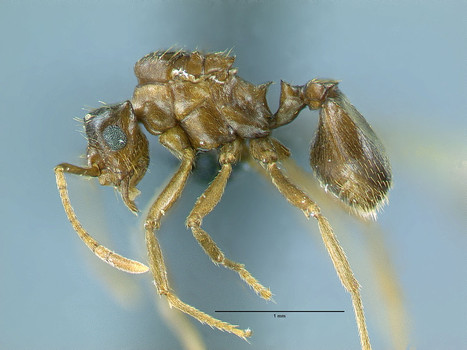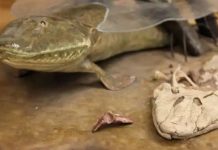A newly discovered ant species in South America has been proven to defy the rules of evolution proposed by Darwin and supported by most evolutionary biologists for the last 200 years. This ant became a new species without having a geographic boundary that separated the ant from its original species. Christian Rabeling, assistant professor of biology at the University of Rochester, and colleagues reported the discovery in the edition of the journal Current Biology.
The parasitic Mycocepurus castrator lives a single patch of eucalyptus trees on the São Paulo State University campus in Brazil. The ant has become a parasite to its originating species called Mycocepurus goeldii. This is the first definite example of sympatric speciation in insects. Sympatric speciation occurs when a new species develops in the same geographic area as the parent species. Most species differentiation requires geographic distance or boundaries. A new species is defined by the inability of the new species to mate with the parent species.
Genetic testing proved that the mitochondria of Mycocepurus castrator have developed a different sequence of nucleotides than the parent species. The differentiation into two new species took about 37,000 years. This period of time is tiny in evolutionary time scales. The researchers suggest that the changes in the two species are still an ongoing process. The new species is not capable of reproducing with the original parent species.
The queen of the new species is similar in size to the worker ants of the new species. The unusual size difference in the queen is a protective factor. The host ants usually kill and eat the queen of a parasitic invader. The small size of the Mycocepurus castrator queen protects the queen and insures new ants can be produced.
This discovery is the first known documentation of sympatric speciation in insects. The discovery does not discredit Darwin or his theories. The discovery does add to the ways and means that nature has to create new species.















